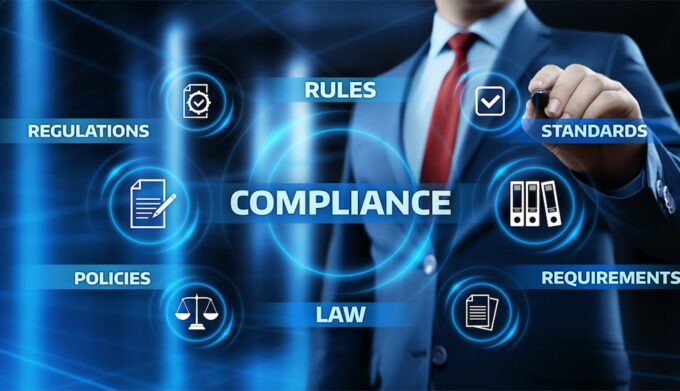Navigating the intricate web of business regulations is an essential step for international companies seeking to establish a foothold in the United Kingdom. Understanding the UK’s business landscape requires a comprehensive grasp of the legal framework, compliance standards, and administrative procedures.
From company formation to tax obligations and employment laws, each aspect demands careful consideration and adherence to ensure a smooth and successful entry into the UK market.
Company Formation in the UK

Source: montenegroguides.co
Establishing a foothold in the United Kingdom often involves the establishment of a legal entity. Companies seeking to expand into the UK can choose from several business structures, each with its unique set of legal implications, taxation considerations, and reporting requirements. The most prevalent business structures include private limited companies (Ltd), public limited companies (PLC), branches, and subsidiaries.
Private Limited Companies (Ltd)
Private Limited Companies, commonly known as Ltd, are a popular choice for small to medium-sized businesses. This structure limits the liability of its shareholders, safeguarding personal assets in the event of business debts or insolvency. They are often viewed as an independent legal entity, offering credibility and stability while requiring a minimum share capital.
Public Limited Companies (PLC)
Public Limited Companies, abbreviated as PLC, are suitable for larger enterprises aiming to offer shares to the public. This structure allows for increased access to capital through public trading on the stock exchange. PLCs face more rigorous regulations, including financial reporting requirements and higher compliance standards, due to their public nature.
Branches and Subsidiaries

Source: usemultiplier.com
Companies may also choose to establish branches or subsidiaries in the UK. A branch operates as an extension of the parent company and doesn’t possess separate legal status, while a subsidiary is a distinct legal entity, often offering liability protection to the parent company.
Registering with Companies House
Irrespective of the chosen business structure, registering the entity with Companies House is mandatory. This step ensures transparency in business operations, legal compliance, and provides essential information to the public and regulatory bodies.
Companies House acts as the UK’s official registrar of companies, maintaining records of company information, director details, accounts, and any changes within the company structure.
For international companies venturing into the UK market, carefully selecting the most suitable business structure is crucial. Each structure comes with its unique benefits and considerations, requiring a comprehensive understanding of UK business regulations and seeking professional guidance to ensure compliance with legal and tax obligations.
Successful registration with Companies House establishes the groundwork for transparency, legal compliance, and credibility, fostering a solid foundation for international businesses operating within the UK.
Compliance and Regulatory Standards

Source: cynergytech.com
Maintaining compliance with regulatory standards is a fundamental obligation for companies conducting business operations within the United Kingdom. The regulatory landscape encompasses a wide spectrum of laws and standards that dictate how businesses operate, ensuring ethical practices, safeguarding consumer rights, and upholding the integrity of various industries.
Data Protection Laws (GDPR)
Compliance with the General Data Protection Regulation (GDPR) is a crucial aspect for companies handling personal data. GDPR dictates stringent measures concerning the collection, processing, storage, and transfer of personal data. International companies operating within the UK must adhere to these regulations, ensuring data protection and privacy for individuals.
Consumer Rights
Protecting consumer rights is a key component of UK business regulations. Companies are obligated to provide accurate product information, maintain fair pricing practices, and ensure satisfactory customer service. Adherence to consumer rights legislation, such as the Consumer Rights Act 2015, is vital to establish trust and transparency with customers.
Health and Safety Regulations

Source: tuc.org.uk
Businesses are required to comply with health and safety regulations to ensure a safe working environment for employees, customers, and the public. Adherence to regulations outlined in the Health and Safety at Work Act 1974 is essential, encompassing risk assessments, safety protocols, and the provision of adequate training to mitigate workplace hazards.
Industry-Specific Laws and Certifications
Different industries have specific regulations and certifications that companies must meet. For instance, companies involved in food production must adhere to stringent hygiene standards and obtain necessary certifications, while financial institutions must comply with regulations outlined by regulatory bodies like the Financial Conduct Authority (FCA).
International companies intending to operate in the UK must meticulously review and ensure their products, services, and business practices align with UK standards. Obtaining industry-specific certifications or licenses, where required, is imperative to comply with regulations and demonstrate commitment to quality, safety, and ethical practices.
Navigating Regulatory Compliance
Navigating the intricate web of UK regulations can be complex, especially for international companies unfamiliar with the country’s legal landscape. Seeking legal counsel or consulting with regulatory experts can provide invaluable guidance in understanding and implementing compliance measures, ensuring adherence to UK laws and regulations.
Companies that prioritize compliance not only mitigate legal risks but also build credibility, trust, and sustainability within the UK marketplace.
Taxation and Financial Considerations

Source: finance-monthly.com
Understanding the UK’s taxation system is crucial for international companies. Corporate tax rates, VAT (Value Added Tax), and other duties significantly impact financial planning. Companies need to familiarize themselves with tax obligations, such as filing annual tax returns and adhering to tax compliance standards set by HM Revenue & Customs (HMRC).
Employment Laws and HR Practices
Employing staff in the UK involves compliance with employment laws governing contracts, working hours, minimum wage, employee rights, and health and safety regulations. Companies must ensure HR practices comply with UK employment laws, including fair treatment, equal opportunities, and statutory benefits like pensions and holiday entitlements.
UK Global Mobility Visa
For international companies seeking to send skilled employees to the UK, the Global Mobility Visa offers a viable option. This visa is tailored for workers skilled in a particular field and is often used by companies to transfer key personnel, facilitating their relocation to the UK for work purposes.
The Global Mobility Visa enables companies to deploy skilled individuals within their organization to the UK for long-term assignments, thereby contributing to their global business operations. It’s essential to adhere to the visa guidelines, including sponsorship requirements and compliance with immigration regulations, to ensure a smooth and legally compliant process.
Understanding the nuances and requirements of the UK Global Mobility Visa is vital for international companies planning to relocate or transfer employees. Adhering to the visa’s specific guidelines, maintaining compliance with immigration laws, and securing proper documentation are imperative for successful employee transfers under this scheme.
It serves as an invaluable tool for businesses looking to navigate international mobility challenges while maintaining a global workforce across different jurisdictions, including the UK.
Intellectual Property Rights

Source: ttconsultants.com
Protecting intellectual property (IP) is crucial. Companies must secure patents, trademarks, and copyrights to safeguard their products, services, or innovations. Understanding UK IP laws and securing proper registrations is vital to prevent infringement and protect company assets.
Expansion Strategies and Market Entry
International companies must craft strategic market entry plans to navigate the competitive UK market successfully. Analyzing market trends, consumer behavior, and local competition can help tailor products or services to meet specific demands. Building partnerships, networking, and understanding cultural nuances can aid in building relationships and establishing a foothold.
Seeking Legal and Professional Assistance
Given the complexity of UK business regulations, seeking guidance from legal and financial experts can mitigate risks and ensure compliance. Consulting with solicitors, accountants, or business advisors specializing in UK law and market entry can provide invaluable insights and guidance throughout the process.
Conclusion
Navigating UK business regulations demands meticulous planning, understanding, and adherence to legal and compliance standards. International companies entering the UK market must prioritize due diligence, continuous monitoring of regulatory changes, and ongoing compliance to establish a successful and sustainable presence in the dynamic UK business landscape.







